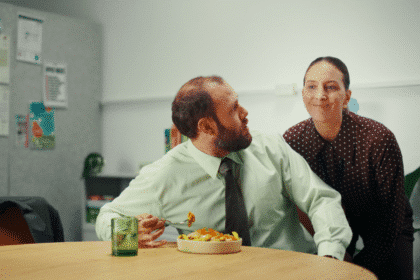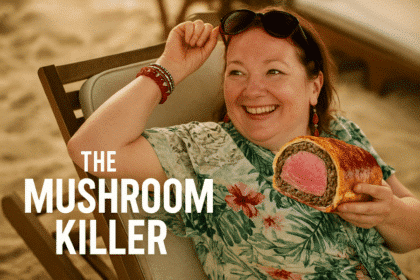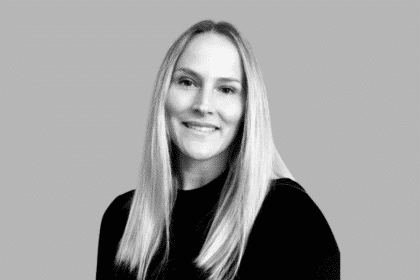On the final day of SXSW Sydney, Burson CEO Adrian Warr moderated a panel with Snapchat’s director of communications APAC Natasha Brack, comedian and writer Sami Shah, and academic and author Susan Carland. The group delved into the role of brands in creating social and political change, how reputation has fundamentally changed, and its impact on brands and businesses.
It used to be that businesses that did the right thing had a good reputation, whereas many businesses today worry that doing the right thing will put them at more risk than doing nothing at all. The way brands navigate reputation and image has changed in a world overwhelmed by social media, where customers can be more vocal about their expectations of their favourite (and hated) brands.
Brands have spent a lot of time and effort trying to address the societal, environmental, and political issues that matter most to their stakeholders. But in divided societies where reputation is not only based on facts, but on beliefs, where a high-profile anti-woke movement is telling businesses to butt out, brands can feel like they are walking a tightrope. It’s no longer enough to pledge support for a cause. Organisations need to demonstrate a sustained and meaningful commitment to all the causes they support.
“But here’s the kicker, even when they do all of that, they can still come under attack. So has brand purpose run its course? Are businesses virtue signalling? Should businesses back off from societal and political issues and let the government rebuild bridges in our divided societies?” asked Warr.
Should businesses get involved in social and political issues?
Warr asked the panel about the buzzy question.
“I think corporates have a responsibility. And there is an expectation from their customers and communities. The data shows that in this country now, business is the number one source of information and confirmation versus media and government, and that’s why we’re seeing more and more corporate activism. I do think that values have to align between the customer and the business. I don’t think they should be jumping into everything. But I do believe there is a place for it,” said Brack.
We might look to Patagonia, a brand that values sustainability and an outdoor lifestyle. The brand closed its retail stores on Black Friday in a bid to get people outside. The decision wasn’t political necessarily, but an example of being true to a brand’s values and doing what consumers expect of you.
Shah felt differently. “No,” he said.
“I think there was a period five years ago where small groups online convinced businesses that they needed to put the LGBTQIA plus flag, or Black Lives Matter support, or any of these things. We’ve since realised that most of this is frippery. It is a distraction from the fact that Woolies is destroying farmers’ lives and price gouging with their duopoly. As a result, if you’re smart, which most consumers are, you realise at this point what is going on.
“A lot of this stuff is just a shallow commitment to a trend which is good for a marketing department coming into work that day and the printing department having things to print, but not much else,” added Shah.
Ever the mediator and academic, Carland saw the sense in both their responses.
“I feel like I heard you two agree more than it sounded like because I think this is a definitional issue. What do we mean when we say moral responsibility or social responsibility for a business? Brack said businesses should only step into places where they have a reason to. Shah pointed out the gross hypocrisy of it, that it’s performative to keep certain people online quiet. I would like to live in a world where businesses aren’t just exploiting and plundering. I think most of us would like that,” she said.
For some people, businesses taking moral or social responsibility might mean having a float in the Mardi Gras. For others, it’s about treating farmers ethically. As a baseline, businesses should be honest and not performative. Carland argued that if there is a cost to the business, like making less of a profit because farmers will get a better deal, then they are likely acting genuinely.
Feelings vs facts
In an increasingly divided society with a nebulous concept of truth, how should brands navigate this space? Consumers are hyper-connected on social media, where their beliefs can be exacerbated and validated by the content the algorithm feeds them.
“Are we actually more divided than ever? Or is it an illusion?” asked Warr.
“To answer this question, I’m going to tell you a lot of facts. But the problem is people don’t listen to facts,” said Carland.
She cited research that found that Australia’s social cohesion index is the lowest it’s ever been in 17 years. Pride in Australia is also at a record low, as well as Aussies’ belief that they belong in Australia. These stats point to the fact that there is social division; we all feel that something isn’t right.
“But we also know from research, ironically, that facts don’t change people’s minds. A personal example is when I’m giving I talk I often ask people what percentage of Australia they think is Muslim. People often say 10 or 20 per cent. One person said 50 per cent. I said, lady, look around the room! It’s actually only 3.6 per cent of Australia, but when I say that, people will say no, I still think it’s 20 per cent. Facts don’t matter, what matters is how we feel.”
Shah pointed out that the way we read news today is not based on publications but on people. People used to read The New York Times, but now they follow one or two people’s opinions that align with their own.
“Journalism is antithetical to personality; we’re seeing a completely different engagement with news,” he said.
How do we fix it?
Social media’s echo chamber can disjoint our beliefs with real, lived reality. Carland suggested that we seek out news sources as well as people that we don’t agree with, to open up our minds to why people have different opinions.
“This ensures that I don’t come to the point where my only possible explanation for someone else’s point of view is because they’re evil or stupid,” said Carland.
Being the great marketer she is, Brack highlighted that Snapchat was founded as an antidote to social media. Snapchat’s campaign, “Less Social Media, more Snapchat” launched in August 2024 to the Australian market targeted this idea.
“We’ve always been a messaging platform. However, in Australia right now, positioning ourselves in this way looks convenient for us, right? People still think we’re social media, so we’ve done a poor job of communicating externally that we’re a messaging platform. It takes a long time to change people’s perspective.
“For instance, we’re known as the dick pic platform. I’ve personally never received one, still waiting!” she joked.
For some, like Shah, brands should make reliable products that work, and nothing else. For others, especially younger generations, there is more pressure on brands to take a stance on social issues. Expecting brands to be decent might be a good starting point. Expecting them to solve society’s problems might be asking too much. As Brack said, “We are not the UN. We cannot solve everything”.








